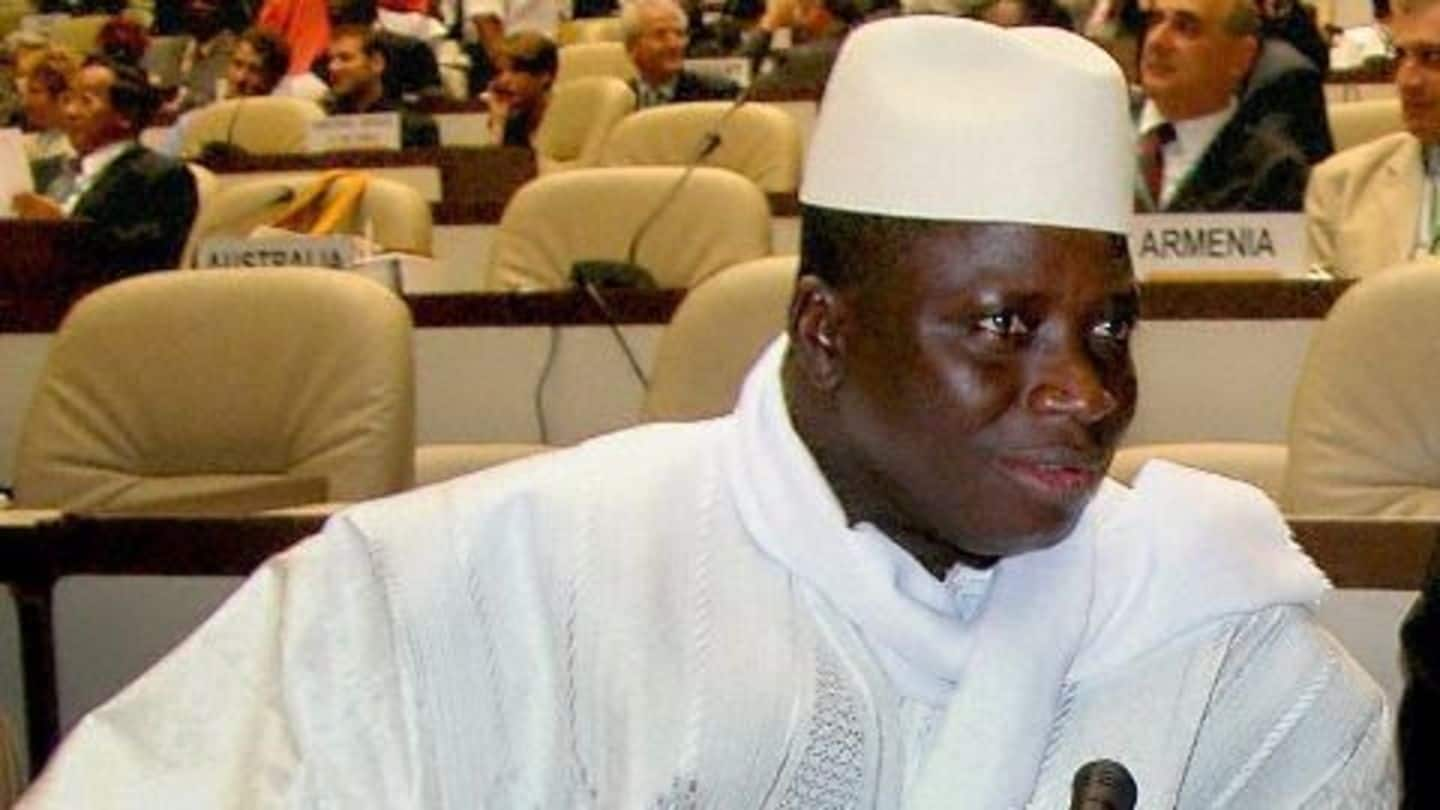
The Gambia declared an Islamic Republic
What's the story
President Yahya Jammeh declared that the Gambia is now an Islamic Republic. The decision was made because a vast majority of the Gambia's population is Muslim and that the Gambia needed to break away from its colonial past. He stated the move would not infringe upon the rights of minorities in the country and that no "dress code" or "separate laws" would be enacted.
Information
What is an Islamic Republic?
An Islamic Republic is a form of government that enshrines values of Sharia law in their penal code. It uses value systems of both an Islamic Caliphate as well as democratic secularism.
Geography
Geography of the Gambia
The Gambia is a West African nation that shares borders with Senegal and the Atlantic Ocean. It is the smallest country in mainland Africa and was a former British colony. It is situated on either side of the Gambia river, the country's namesake. Poor soil quality rendered only 1/6 of land arable leading to predominance of only one crop, peanuts.
Politics
Independence, elections and a coup
The Gambia gained independence from Britain in 1965. It began conducting elections every five years, and from 1965 to 1994 was ruled by President Dawda Jawara's Peoples Progressive Party. Following allegations of corruption, former Military Police Chief, Yahya Jammeh came to power in a coup, staged in 1994. President Jammeh organized and won civilian elections in 1996 and has remained in power ever since.
Economics
Agriculture, fisheries and tourism
The Gambia is a low-income agrarian economy with a GDP of USD 807.1 million. Over 70% of the population works in the agricultural sector. The predominant crop is peanut, accounting for a large chunk of exports. Tourism is major source of foreign exchange primarily for their sea side resorts along the Atlantic coastline. Fishing is also a significant contributor to the economy.
Demographics
Major religions and ethnicities in the Gambia
The Gambia has a population of 1.88 million people of which nearly 90% are Muslims. A majority of Muslims are Sunni while there are relatively few numbers of Muslims following the Ahmadiyya sect of Islam. Christians account for roughly 8% of the population. The rest of the population practice indigenous religious beliefs like the Serer and Jolo religions.
Human rights
Killings, disappearences and homophobia
In April 2011, Jammeh's government was accused of killing 12 students and a journalist during a protest over the death of another student. Several journalists and students have been reported missing after being picked up by 'plain-clothes' government officials. In May 2015, during a speech, Jammeh said, "If you do it [in the Gambia] I will slit your throat", in reference to homosexuality.
Information
Other Islamic Republics
The Gambia is the second African nation after Mauritania to become an Islamic Republic. Pakistan was the world's first Islamic Republic (1956) followed by Mauritania (1958), Iran (1979) and then Afghanistan (2001).
Information
Unconstitutional change?
Opposition party members argue that there is a constitutional clause that says that The Gambia is a secular state and that such a decision cannot be made without holding a referendum.